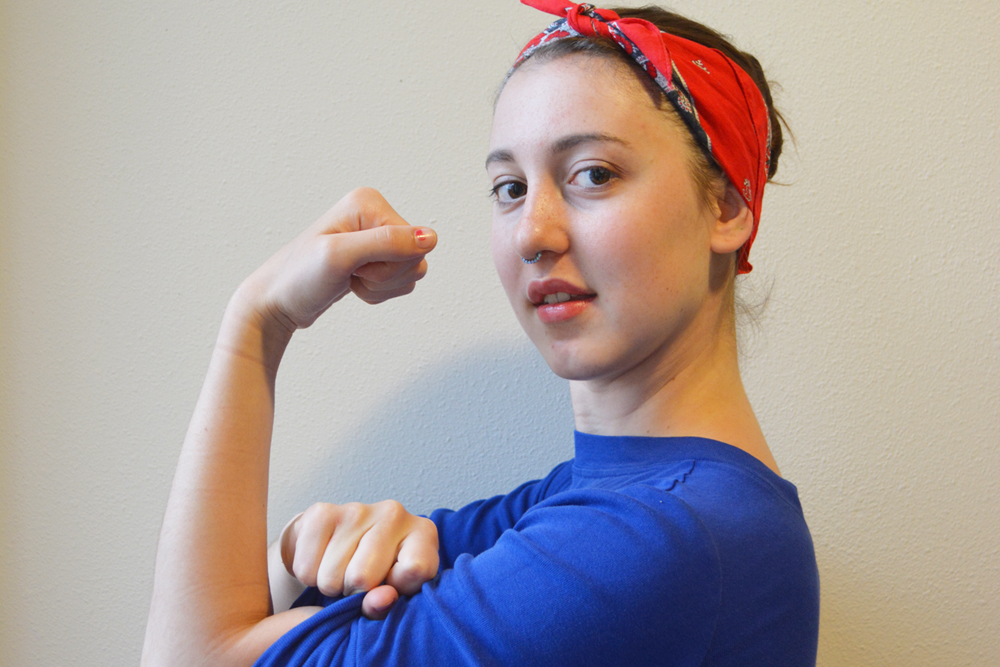For centuries, women and men alike have been plastered across billboards, magazines, televisions, etc. broadcasting to the world their magnificent, seemingly flawless, photoshopped bodies.
Of course, behind the scenes, all the creators of these ads are trying to do one simple thing: promote their product or project. They use models, actors and actresses who are desirable, and they photoshop them until they create the ideal body type—the type of body young men and women are influenced to believe are the achievable normal. In doing so, the media has made our youth self-conscious about who they are inside and out: how they should dress, how they should act, how their bodies should be shaped. It’s as if we should all be clones of one another in order to really fit in.
Fortunately for the physical and mental health of all generations, society has begun to take a leap in a better direction. Celebrities are beginning to use their fame as a way to address this issue, especially since they’re the ones being altered. Lorde, for example, has taken to Twitter to post side-by-side photos of herself: one untouched, and one influenced by technology. She captioned the photos, “Remember flaws are ok.”
Not only is there a stand being taken against edited photographs, but there’s also an attempt to take back the definition of what beauty really means, as opposed to what the media would have us believe.
Sandra Bullock was recently named People Magazine’s “Most Beautiful Woman of 2015.” Bullock’s remarks could not have been more perfect, calling the title ridiculous and explaining that she sees beauty as something that comes from within.
But if we stop to talk about outer-beauty, then Lane Bryant is a great place to start with their latest “I’m No Angel” campaign, which is taking a stand for plus-size models. Lane Bryant models their lingerie on varying body shapes and sizes, essentially working to break down what Victoria’s Secret has forced into our minds for too many years: You have to be thin to look good in lingerie (which
is just absurd).
When anyone asks a person to define beauty, the answer shouldn’t pertain to what a person weighs, or what size of clothes they wear. Beauty is dependent on the beholder. If a person feels beautiful, then they are, because real beauty is the confidence, the joy, the whatever, that a person exudes when they feel good about themselves.
Our culture needs to stop putting strict definitions on the words beauty and attractive. We need to realize that each individual has their own shape, their own size, and their own characteristics, and that’s what makes us so great! We aren’t clones; we aren’t photocopies of one another; we are ourselves—our confident, good-looking, good-feeling selves. You can’t boil a person down to a single definition, and it’s insulting to try and do so.
To quote Ralph Waldo Emerson, “To be yourself in a world that is constantly trying to make you something else is the greatest accomplishment.”
So next time you go to pick up a magazine and see the flawless model on the cover, just remember all the extensive photoshop that has taken place. No one is flawless. You are you, and you are beautiful.







“For centuries, women and men alike have been plastered across billboards, magazines, televisions, etc. broadcasting to the world their magnificent, seemingly flawless, photoshopped bodies.”
I could not get past this sentence and read any further. For centuries? Really? None of the examples given have existed for centuries.
“Our culture needs to stop putting strict definitions on the words beauty and attractive.”
Absolutely could not disagree more. There absolutely are certain characteristics that, on average, are more attractive than others. Not everyone can be beautiful any more than everyone can be smart. The notion of “Plus-sized” models is laughable. So if a woman who is 100 pounds overweight can be considered “beautiful”, does that mean we also have to say that men who are 100 pounds overweight are similarly beautiful? Where exactly does this hug train end? To be sure, no one should base their own self worth on how they stack up comparing and contrasting themselves with the images portrayed in magazines and popular culture. Not everyone finds the same things beautiful, but to pretend that objective incarnations of beauty and attractiveness do not exist is delusional at best and disingenuous at worst.